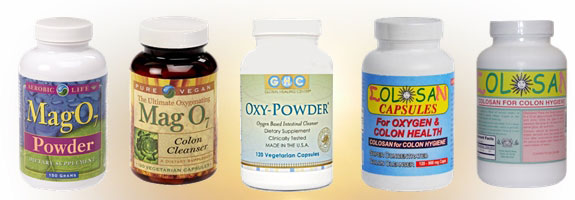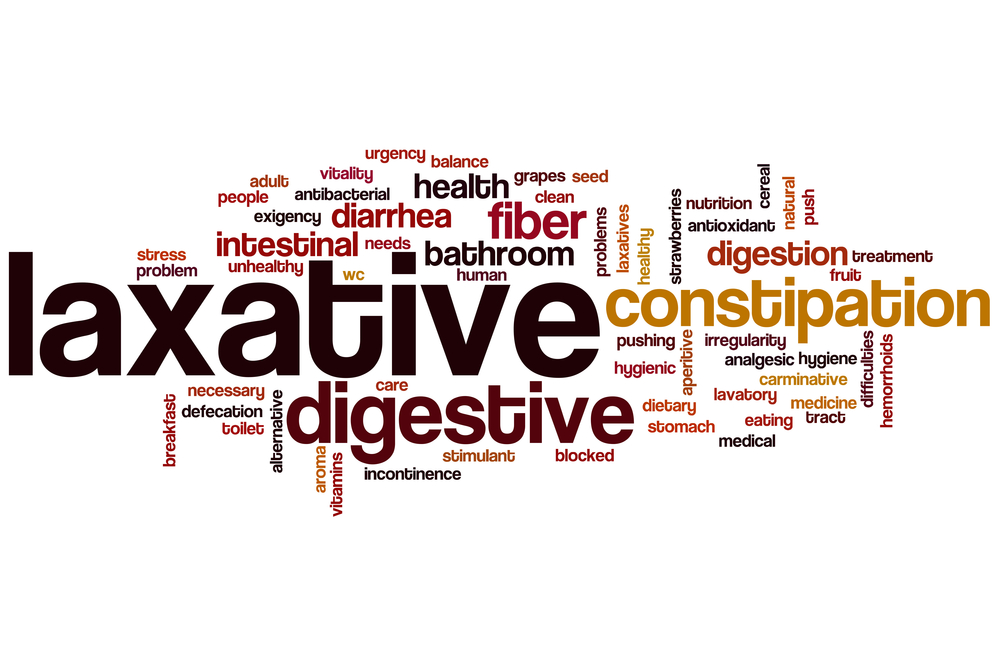Oxygenate your Colon
If you’ve over indulged over Christmas then been sluggish during the January gloom, now is the time to Spring clean out the gunk.

Constipation has met it’s match – view our Oxygen Colon Cleansers here
Most recent Mag 07 review
I’ve been taking Mag 07 for a week and am finding it brilliant. It has reduced bloating, and flushed out my system. I have a clean system now, and I believe that without it, you’re not going anywhere in terms of your health. I take 4 capsules per day – 2 in the morning and 2 at night. I intend to continue to taking it indefinitely.
Click here for more Mag 07 reviews
Most recent Colosan review
I’ve been taking colosan on and off for around 7 years. Nowadays I just use it if I have over eaten fibrous foods which made be bloated and colicky. I originally took a teaspoon at night with a little lemon juice and in the morning I had a very happy elimination. When I used it for the first week I eliminated what I can only describe as material that looked like black tar, but without and discomfort. Since then I haven’t looked back. It gave me my energy back and an overall sense of lightness and wellness.
Click here for more Colosan reviews
Most recent Oxy-Powder review I have used Oxy-Powder regularly for years and it is absolutely brilliant. I use one capsule, sometimes two a day. It keeps me ‘regular’, stops me feeling full and bloated and keeps my digestive system efficient. Combined with my healthy diet it makes me fell very well. I am happy that it is an animal friendly vegan product as I don’t want to harm animals. I will probably use this product for the rest of my life it is so good. Click here for more Oxy-Powder reviews
Don’t forget, you’ll get 500 reward points by logging in and writing your own review if you have used any of these products. We’ll even award the points if you write a negative review (so long as it’s not abusive or containing comments which we feel are blatantly erroneous).
Why you should cleanse your colon
Colonic hydrotherapy practitioners often maintain that the average adult is walking around with anywhere from six to twelve pounds of undigested material fermenting in their large intestine (the colon). Regardless of the amount of unwanted material lingering in the gut, there is little doubt that our Western diets (and Western drinking habits) contribute to a less than perfect intestinal environment for most of us. Result? An environment in which candida, parasites, microbes and other toxins thrive. And we tend to let whatever discipline we do have when we go off over Christmas and the New Year. Then in January and February, when the weather is gloomy, we tend to add to this through over eating, and sluggish levels of physical activity. It is unimaginable to think of going one week without the use of a toothbrush or toilet tissue. Yet, when was the last time you thought about cleaning the twenty feet in between? Do you think it’s any cleaner? It’s a simple fact, people rarely clean where they cannot see and that is where problems begin.
How often do you poop?
Constipation is commonly defined as not pooping 3 or more times per week. We disagree and follow the general view of naturopathic practitioners, that as a minimum we should to go the toilet every day without straining. But we should go to the toilet once for every meal we eat.
Why use an Oxygen based colon cleanser?
This is explained by John Taggart, the owner of the company that manufactures Colosan as such. Digestion is a process of oxidation. That is why we give off heat, carbon dioxide and sulfur dioxide. Just like a car engine when there is improper oxidation some of the fuel gets left behind as a residue. In the digestive tract, there is a similar build up of partially digested gunk. In an automobile when you add oxygen to the fuel mixture the built up materials are burned off or oxidized. You can do the same for your body. As these materials accumulate and subsequently begin to rot, your body wraps them in mucous to keep them from poisoning you. Colosan turns the accumulation and the mucous into carbon dioxide and water that are gently eliminated. By using Colosan to oxidize and eliminate this impacted material, you are gently eradicating the home base to some of the largest assailants to your health and giving them nowhere to hide. By comparison laxatives tend to work as somewhat aggressive cathartics or purgatives. Amphetamines used as diuretics, are addictive and cause the body to dump its’ valuable water. Herbal laxatives such as senna work by employing micro toxins, or irritants, to produce the same effect, again of purging valuable water in order to flush the digestive tract. These two methods drain the body of necessary fluids in their attempt to wash out the system and are not ideal for long-term use. Another method of cleansing the colon involves the leeching of material from the colon walls using carbon and clay. This is not harmful, but it does not oxygenate the digestive system. Similarly, fibre type laxatives like psyllium can be useful, but a lot of people do not tolerate them well,find them bloating (me – the writer of this newsletter and company director, being one of them). And once again this does not oxygenate the gut.
Candida and the Oxygen Colon Cleansers
Again quoting John Taggart “Many candida sufferers revere Colosan saying that they are the only thing that restores sanity and brings them calming relief from bouts of severe yeast overgrowth. Colosan dissolves the crud that the yeast is growing in, and creates an aerobic environment where beneficial flora can thrive and keep candida in check”.
Don’t take our word for it!
View what our customers say about colosan here
View what our customers say about oxy-powder here
View what our customers say about Mag 07 here
Which is the best colon cleanser, Oxy-Powder or Colosan or Mag 07?
We get asked this question every day. Unfortunately we refuse to say that one is better than the other as we have had just as many people prefer one as another one. They are all great products – that’s all we can say. Occasionally people report to us that they have used one for a while and it worked great at the beginning, but gradually worked less and less effectively. Where this occurs, we usually find that rotating the products, even though they are theoretically very similar seems to do the trick.
No matter which product you choose, our basic message is: Clean your colon and you will be stronger and healthier for having done so.
Are the Oxygen Colon Cleansers compatible with colon hydrotherapy treatment / colonic irrigation?
Yes
(We wish all the questions we got asked were as simple to answer as this common enquiry).
Actually, we get a lot of referrals from colon hydrotherapy practitioners who recommend one of these products to their clients to use before or between treatments (the specific advice they tend give on how to use them tends to vary from one practitioner to another – but the fact remains that we are gettng many referrals).
Are there other benefits to using an oxygen colon cleanser besides cleaning the colon
Absolutely. The oxygenation not just for the gut, but of the whole body which these products were originally designed to provide were originally regarded as the main benefit. That is to say the improved oxygenation was thought to improve all aspects of health and well-being. It’s not us saying this, but the inventors of this genre of cleanser, namely two German doctors and naturopaths who invented their forerunner (Homozon) in 1898. They regarded flooding the gut and subsequently the tissues of the body with more oxygen as the primary benefit, with the colon cleanse aspect only being a ‘side’ benefit.
View all Oxygen products here (this includes the liquid oxygen products, which oxygenate the whole body, but do not cleanse the colon)
View all Colon Cleanse products here (this includes the fibre and probiotic based cleansers)
Our home page: www.thefinchleyclinic.com




 Actually I recommend any vitamin C product as being beneficial. However our top selling one, and the one I take myself is
Actually I recommend any vitamin C product as being beneficial. However our top selling one, and the one I take myself is 

 Best wishes
Best wishes